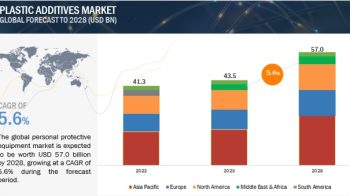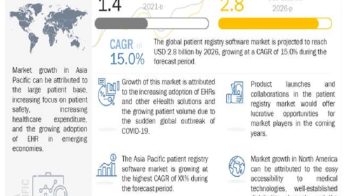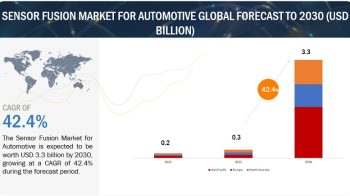Overview of This Study:
This study involved four major activities in estimating the current size of the healthcare IT market. Exhaustive secondary research was done to collect information on the market as well as its peer and parent markets. The next step was to validate these findings, assumptions, and sizing with industry experts across the value chain through primary research. Both top-down and bottom-up approaches were employed to estimate the complete market size. Thereafter, market breakdown and data triangulation were used to estimate the sizes of segments and subsegments.
Market Size Estimation:
Both top-down and bottom-up approaches were used to estimate and validate the total size of the healthcare IT market. These methods were also used to estimate the size of various subsegments in the market. The research methodology used to estimate the market size includes the following:
# The key players in the industry and markets have been identified through extensive secondary research.
# The industry’s market size, in terms of value, has been determined through primary and secondary research.
# All percentage shares, splits, and breakdowns have been determined using secondary sources and verified through primary sources.
Download FREE PDF Brochure@
https://www.marketsandmarkets.com/pdfdownloadNew.asp?id=252
Expected Revenue Surge:
The healthcare IT market is projected to reach USD 390.7 billion by 2024 from USD 187.6 billion in 2019, at a CAGR of 15.8% during the forecast period. The growing volume of patient data, an increase in technological know-how, and demand for quick and efficient healthcare processes and systems are driving the demand for HCIT solutions.
Recent Developments in the Global Healthcare IT Industry:
# In 2019, Philips launched Cares Aging & Caregiving service.
# In 2018, Change Healthcare launched Dx Gap Advisor
# In 2017, Optum acquired DaVita Medical Group (US). The acquisition of DaVita enhanced Optum’s physician-led primary, specialty, in-home, and surgery-care delivery services business.
# In 2017, Cognizant acquired TMG Health (US) to expand its business process-as-a-service solutions for government and public health programs
# In 2018, Optum collaborated with Humana (US), MultiPlan (US) and Quest Diagnostics (US) to form a group to explore the blockchain technology to improve data quality and reduce administrative costs in healthcare
“North America dominated the Healthcare IT market in 2018”
The Healthcare IT market is broadly segmented into five major regions, namely, North America, Europe, the Asia Pacific, Latin America, and the Middle East & Africa. North America accounted for the largest share of the Healthcare IT market in 2018. The large share of this region can be attributed to the technological competencies of healthcare industry and presence of well-established healthcare IT infrastructure in this regions. Changing regulatory requirements for improving quality of healthcare and increasing patient safety and rising healthcare expenditures are some of the key factors driving the growth of the healthcare IT market in North America.
Key Questions Addressed in the Report
# Who are the top 10 players operating in the healthcare IT market?
# What are the driving factors, restraints, opportunities, and challenges in the market?
# What are the industry trends as well as the current scenario in the healthcare IT market?
# What are the growth trends in the market at the segmental and overall market levels?
Request for FREE Sample Pages@
https://www.marketsandmarkets.com/requestsampleNew.asp?id=252
Global Industry Leaders:
Some of the major players operating in this market include Optum (US), Cerner (US), Cognizant (US), Change Healthcare (US), Philips Healthcare (Netherlands), Epic Systems (US), Dell Technologies (US), Allscripts (US), GE Healthcare (US), IBM (US), Athenahealth (US), Oracle Corporation (US), COnduent (US), Infor (US), Tata Consultancy Services (India), Wipro Limited (India), Conifer Health (US), Nuance (US), 3M (US), Inovalon (US), InterSystems (US), Leidos (US), Softheon (US), Omnicell (US), and Ciox Health (US).


